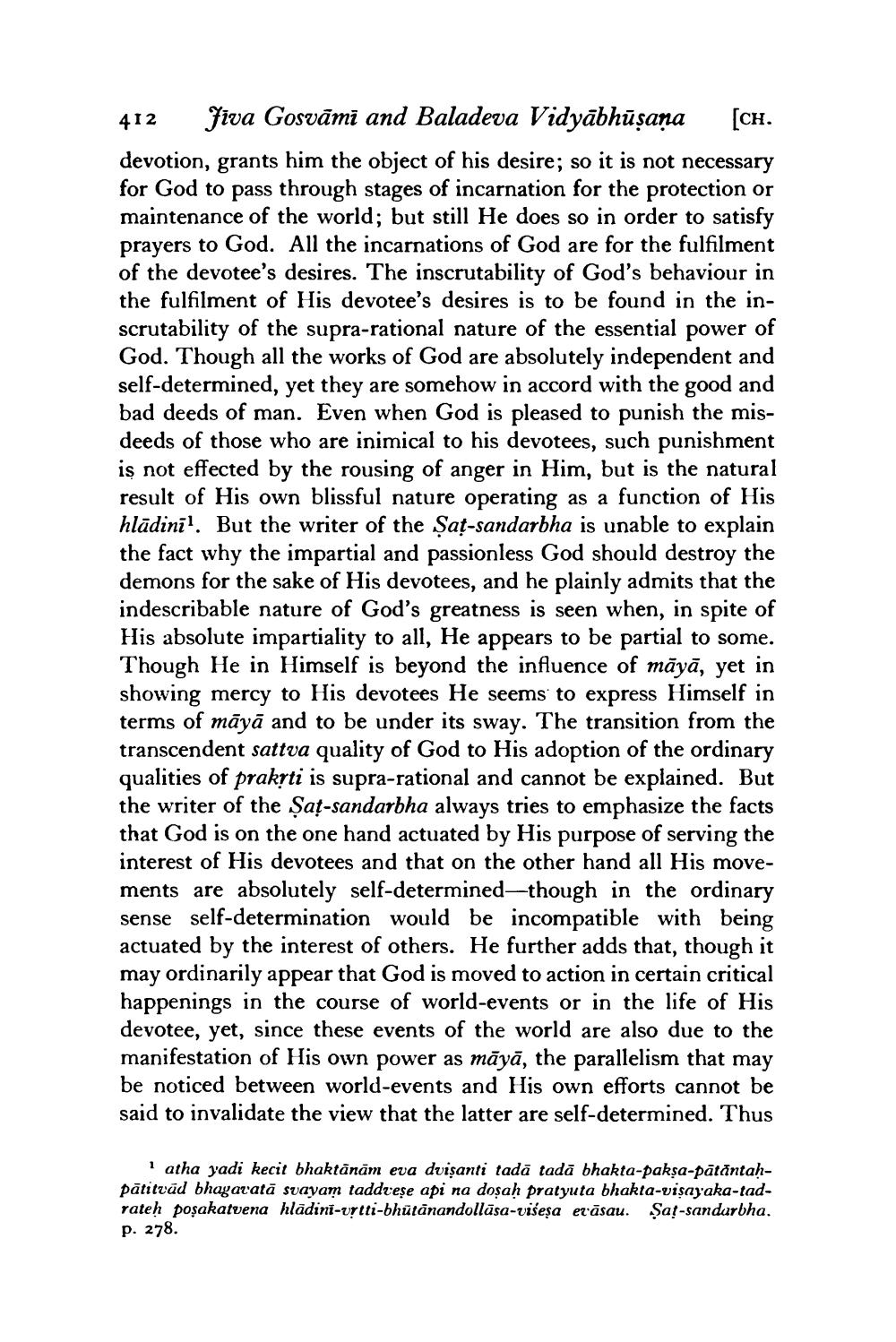________________
412 Jiva Gosvāmī and Baladeva Vidyābhūsaņa [CH. devotion, grants him the object of his desire; so it is not necessary for God to pass through stages of incarnation for the protection or maintenance of the world; but still He does so in order to satisfy prayers to God. All the incarnations of God are for the fulfilment of the devotee's desires. The inscrutability of God's behaviour in the fulfilment of His devotee's desires is to be found in the inscrutability of the supra-rational nature of the essential power of God. Though all the works of God are absolutely independent and self-determined, yet they are somehow in accord with the good and bad deeds of man. Even when God is pleased to punish the misdeeds of those who are inimical to his devotees, such punishment is not effected by the rousing of anger in Him, but is the natural result of His own blissful nature operating as a function of His hlādinī'. But the writer of the Șat-sandarbha is unable to explain the fact why the impartial and passionless God should destroy the demons for the sake of His devotees, and he plainly admits that the indescribable nature of God's greatness is seen when, in spite of His absolute impartiality to all, He appears to be partial to some. Though He in Himself is beyond the influence of māyā, yet in showing mercy to His devotees He seems to express Himself in terms of māyā and to be under its sway. The transition from the transcendent sattva quality of God to His adoption of the ordinary qualities of prakặti is supra-rational and cannot be explained. But the writer of the Șat-sandarbha always tries to emphasize the facts that God is on the one hand actuated by His purpose of serving the interest of His devotees and that on the other hand all His movements are absolutely self-determined—though in the ordinary sense self-determination would be incompatible with being actuated by the interest of others. He further adds that, though it may ordinarily appear that God is moved to action in certain critical happenings in the course of world-events or in the life of His devotee, yet, since these events of the world are also due to the manifestation of His own power as māyā, the parallelism that may be noticed between world-events and His own efforts cannot be said to invalidate the view that the latter are self-determined. Thus
atha yadi kecit bhaktānām eva dvişanti tadā tadā bhakta-paksa-pātantahpātitvād bhagatatā svayam taddreşe api na dosah pratyuta bhakta-visayaka-tadrateh poşakatuena hladini-urtti-bhūtānandollāsa-višeşa etāsau. Şat-sandurbha. p. 278.




